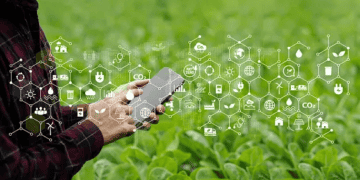Certification schemes play a crucial role in assuring consumers of the sustainability, quality, and authenticity of bio-based products. These schemes provide products with certification labels or marks, signifying that they have met specific standards and undergone rigorous evaluations. This instills confidence in consumers, enabling them to make informed choices that align with their values and expectations.
There are several key reasons why adapting certification schemes is important:
- Standardization: Adapting certification schemes helps establish standardized criteria and guidelines for assessing the sustainability and quality of bio-based products. This ensures consistency and comparability across different products, markets, and regions. Standardization allows stakeholders to make informed decisions based on reliable and consistent information, fostering trust and facilitating trade.
- Relevance: Certification schemes must evolve and adapt to technological advancements, scientific knowledge, and environmental regulations. This adaptation ensures that the schemes remain relevant and up-to-date, incorporating the latest understanding of sustainability principles and best practices. This allows certification to address emerging challenges and promote continuous improvement in bio-based industries.
- Market Acceptance: Adapting certification schemes increases their market acceptance and recognition. When these schemes align with the evolving needs and expectations of consumers, businesses, and regulators, they become more widely adopted. This leads to increased confidence in certified products, broader market access, and enhanced competitiveness for bio-based industries. Certification schemes can help drive the market demand for sustainable bio-based products, encouraging more companies to adopt sustainable practices.
- Traceability and Transparency: Adapting certification schemes enhances traceability and transparency throughout the supply chain. It enables the inclusion of key information, such as the origin of biomasses and biowastes, production processes, and environmental impacts, in the certification process. Improved traceability and transparency facilitate accountability, ensure ethical sourcing, and enable stakeholders to make informed decisions about the sustainability credentials of bio-based products.
- Continuous Improvement: Adapting certification schemes allows for continuous improvement in the evaluation and certification processes. By incorporating feedback from stakeholders, scientific advancements, and lessons learned from practical implementation, certification schemes can evolve to become more effective, robust, and aligned with the needs of the industry and society. Continuous improvement ensures that certification remains a relevant and trusted tool for promoting sustainable bio-based value chains.
- Health and Safety: Some certification schemes focus on ensuring the health and safety aspects of bio-based products. For example, certifications for organic products verify that the products are free from harmful chemicals and have been produced using environmentally friendly practices. By choosing certified bio-based products, consumers can prioritize their health and well-being, knowing that the products meet stringent safety standards.
- Ethical and Social Considerations: Certification schemes may include criteria related to ethical and social responsibility. They can address aspects such as fair trade, labor rights, and community engagement. By selecting products with relevant certifications, consumers can support companies that uphold ethical practices and contribute positively to the welfare of workers and local communities.
- Making Informed Choices: Certification schemes empower consumers to make informed choices aligned with their values and sustainability preferences. By providing standardized and comparable information, certifications enable consumers to evaluate the environmental impact, resource efficiency, and overall sustainability performance of bio-based products. This allows consumers to support companies that prioritize sustainability, incentivizing the industry to adopt more environmentally friendly practices.
- International Cooperation: Adapting certification schemes encourages international cooperation and harmonization. As bio-based industries operate globally, having compatible certification schemes across different regions facilitates trade, reduces barriers, and promotes collaboration. Harmonized certification schemes enable the exchange of knowledge, best practices, and resources, supporting the growth and development of bio-based industries on a global scale.
In summary, adapting certification schemes is essential to ensure their relevance, effectiveness, and market acceptance. By aligning certification with evolving needs, promoting traceability and transparency, and fostering international cooperation, adapted certification schemes support the growth of sustainable and responsible bio-based industries.
Discover comprehensive supply chain report news insights at The Supply Chain Report. For international trade resources, visit ADAMftd.com.
#CertificationSchemes #SustainabilityStandards #BioBasedProducts #ConsumerConfidence #MarketAcceptance #Standardization #RelevanceInCertification #TransparencyInSupplyChain #TraceabilityInBioProducts #ContinuousImprovement #HealthAndSafety #EthicalSourcing #SocialResponsibility #InformedConsumerChoices #GlobalCooperation #SustainableBioValueChains #SustainablePractices #BioBasedIndustries #CertificationForSustainability #EcoFriendlyProducts















